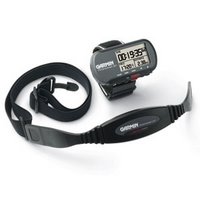 The heart rate monitor tells all, doesn't it (yea, I'm "old school" with my 301)? When you use it a lot, you get to know yourself, and your abilities, and it will tell you when you're not having a good day (I hate to be so blacked out - it tells you when you are having a good day too...). Now, I've had this cold going on a week now, and that's pretty normal for me - it's definatley in it's final stages.
The heart rate monitor tells all, doesn't it (yea, I'm "old school" with my 301)? When you use it a lot, you get to know yourself, and your abilities, and it will tell you when you're not having a good day (I hate to be so blacked out - it tells you when you are having a good day too...). Now, I've had this cold going on a week now, and that's pretty normal for me - it's definatley in it's final stages.So, Thursdays are my bike days, and I had a 37-miler at an easy pace planned since I should have done a hard 60 on Tuesday. I read somewhere that you should not try to "make up" lost workouts, just keep with your plan when you are getting over an injury or sickness - ok... Right out of the shoot today, my HR is 160, chugging along at 20mph. No breeze, cooler than usually and sligtly humid (this is Florida, after all), I'm usually at 132 - 135 when I start a ride at this pace. Darn. Maybe it will go down after I get warmed up. I think I saw 159 for about 2 seconds there on a slight down hill, but for the most part - it just kept going up. It was screaming at me, "ok, dumba$$, you're still sick, dial it back and go back to bed!!!". With all that noise, I had to listen, and cut it short at 25 miles. No run after (yet) as planned - lets see how I feel tonight.
In thinking about this, have I started training with advanced techniques? Does really training with a HRM or a power meter qualify for consideration to veteran status? At what point should I consider myself, or does the triathlon 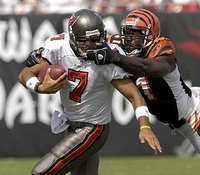 community consider a fellow athlete no longer a rookie? I don't want to be a rookie forever. I'm guessing that there's a time-limit alotted to being one. For pro football players, they have a rookie season, and than that's it, no longer a rookie. Play for a year, and then you have what it takes to be a seasoned vet. Or are you just a vet now? How long until you are a "seasoned" vet?
community consider a fellow athlete no longer a rookie? I don't want to be a rookie forever. I'm guessing that there's a time-limit alotted to being one. For pro football players, they have a rookie season, and than that's it, no longer a rookie. Play for a year, and then you have what it takes to be a seasoned vet. Or are you just a vet now? How long until you are a "seasoned" vet?
 community consider a fellow athlete no longer a rookie? I don't want to be a rookie forever. I'm guessing that there's a time-limit alotted to being one. For pro football players, they have a rookie season, and than that's it, no longer a rookie. Play for a year, and then you have what it takes to be a seasoned vet. Or are you just a vet now? How long until you are a "seasoned" vet?
community consider a fellow athlete no longer a rookie? I don't want to be a rookie forever. I'm guessing that there's a time-limit alotted to being one. For pro football players, they have a rookie season, and than that's it, no longer a rookie. Play for a year, and then you have what it takes to be a seasoned vet. Or are you just a vet now? How long until you are a "seasoned" vet?I've got 12 or so tri's under my belt now. I've raced in 3 Olympic distance races and a bunch of sprints. Does just racing in a tri or 10 magically transform me into a Vet? Or is it something else? What separates the rooks from the vets? Here are some things that I think would make me consider a fellow triathlete a Vet:
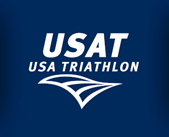 1) Vets know the rules. Vets embrace the rules. Vets help enforce the rules. Guess that means no Ipods, and understanding that Ipods on the course makes it unsafe for the person wearing them and more importantly for everyone around them. Vets don't draft. Vets don't block. Vets keep a neat transition area and stay in thier own space.
1) Vets know the rules. Vets embrace the rules. Vets help enforce the rules. Guess that means no Ipods, and understanding that Ipods on the course makes it unsafe for the person wearing them and more importantly for everyone around them. Vets don't draft. Vets don't block. Vets keep a neat transition area and stay in thier own space.2) Vets train to a plan. It may not be a scientific plan, or a plan derived from a $150 / month coach or bought from on online guide, but it's a plan. Vets have some sort of training log - it may just be a calandar with the workouts sketched out on it, but they track what they do, and they know where they are going.
3) Vets set realistic training and race goals. Of course a tri-vet has came out swinging on thier fair share of races only to pull up lame before the finish line - this is something you learn from experience - it's really hard to listen to someone tell you how to race within yourself when you're a type-A and really hate getting passed.
4) Vets get good at all 3 sports. Now here's where you start seperating the rooks from the vets - just how weak is your weak discipline? Is your swim split way out of line with your bike or run performance? Now there are many of us who come from a running or bikeing or swimming (I really hate you folks, btw...) background, so they will naturally be great in those areas. The Vet works on thier weaknesses. This process usually happens in an off-season, so in your Rookie year, it would be pretty tough to be well rounded in all 3 sports since you haven't even had your first "off season" yet.
5) Vet's give back to the sport. In some way or form, a Vet is helping out. They belong to a Tri-club, perhaps, or are part of TNT. Vets take other athletes, rookies or what have you, under thier wing and help them get better. Vets encourage other competitors at races, or when you see folks out training. Vets help rooks set up thier transition area, and stop them before they leave T1 without thier helmit on.
 6) Vet's know what is really important. Notice what Vet's aren't - they aren't the folks with the ultra-sleek carbon or titanium bikes - they could be, they may want to be, but they don't have to be - more often than not, they are kicking butt on a conservitively priced bike and no wetsuit. Granted, they probably are the guys in the speedo's, and there's not much we can do about that, other than look the other way, but we'll have to live with that.
6) Vet's know what is really important. Notice what Vet's aren't - they aren't the folks with the ultra-sleek carbon or titanium bikes - they could be, they may want to be, but they don't have to be - more often than not, they are kicking butt on a conservitively priced bike and no wetsuit. Granted, they probably are the guys in the speedo's, and there's not much we can do about that, other than look the other way, but we'll have to live with that.I don't know....I'm getting there. I'll never be a Pro, but I'd like to think I could be a Vet. I think that after this season, when in the off season I get my run splits more in line with my bike, I'll be a bit more apt to call myself a vet. I probably set too high a standard for that, but setting high standards has always been my bag, baby. Time for some more Vitamin C...




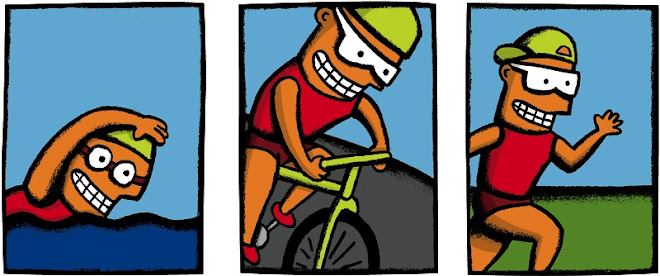

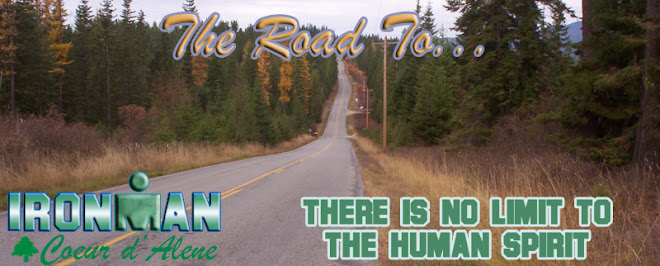


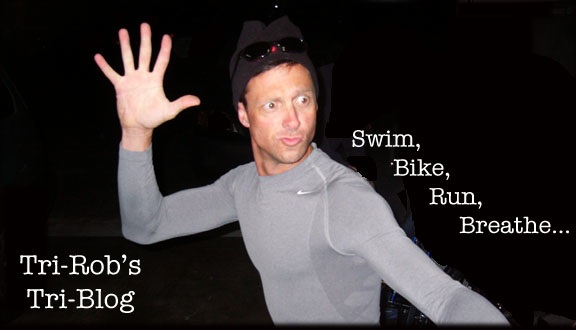
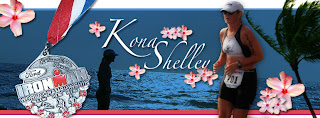


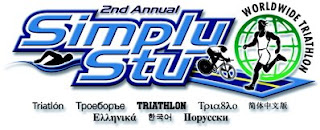






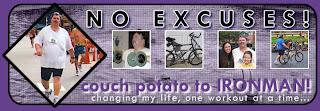


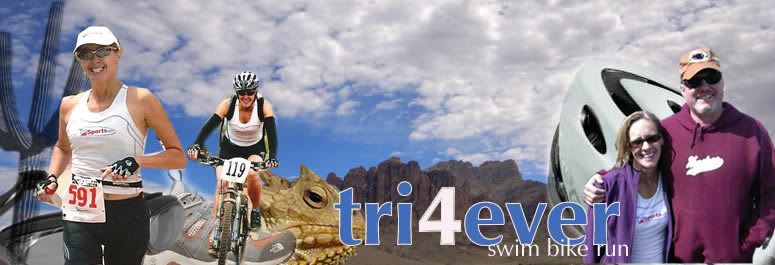


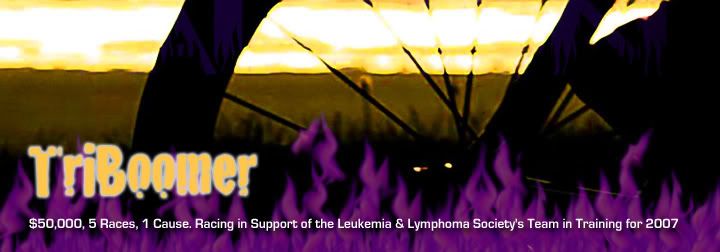

























1 comment:
Really good, man. BTW, I'm way old school, too... I have a 39.99 Polar heart monitor!!!
Post a Comment